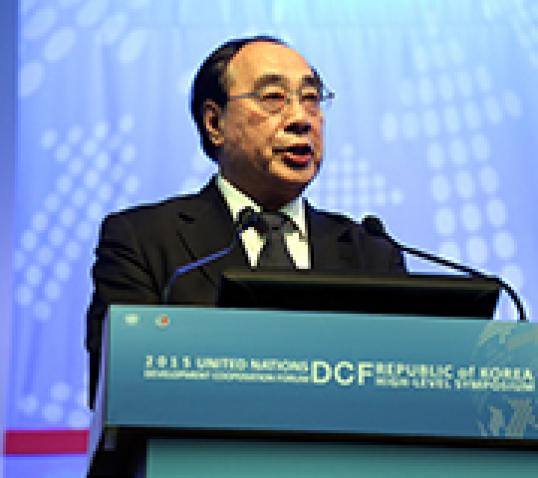Gathering at this year’s Development Cooperation Forum (DCF) High-Level Symposium, stakeholders from both developed and developing countries will design a new path for how development cooperation should support developing countries, in particular the poorest and most vulnerable, in view of the 2030 Agenda for Sustainable Development.
The universal Agenda with its 17 Sustainable Development Goals (SDGs) calls for action by all countries, and demands a rethinking of international development cooperation. Development cooperation takes many forms – financial resources, capacity building, technology development and transfer and multi-stakeholder partnerships. All will be vital, given the great scale and scope of support needed to achieve the Agenda.
The Government of the Kingdom of Belgium, in collaboration with UN DESA is hosting the DCF High-level Symposium on “Rethinking development cooperation for the SDG’s: country-level perspectives and lessons”, from 6 to 8 April 2016 in Brussels, Belgium. Her Majesty the Queen of the Belgians, and one of the 17 SDG Advocates appointed by UN Secretary-General Ban Ki-moon earlier this year, will officially open the Symposium on 7 April.
The Symposium seeks to demonstrate how development cooperation actors will work to achieve the SDGs and realize the commitments made in the Addis Ababa Action Agenda on financing for development, with a focus on country-level perspectives. It will focus on two specific themes: making development cooperation a better fit for implementing the 2030 Agenda in LDCs and vulnerable contexts; and adapting development cooperation institutions to the implementation of the Agenda.
Participants will share their experiences on what makes development cooperation work, in particular in the Least Developed Countries (LDCs) and countries affected by conflict and fragility, and discuss how development cooperation should be tailored to support these countries to achieve the SDGs.
They will also look at the opportunities and challenges in all countries for development cooperation institutions in their adaptation to the 2030 Agenda as well as share their early experiences in adapting their institutions and lessons learned. Focus will also be on the distinctive role of development cooperation in domestic resource mobilization and in responding to the challenges of climate change.
The Symposium will produce concrete policy guidance on development cooperation in the 2030 Agenda and the deliberations will feed the preparations for the 2016 high-level meeting of the Development Cooperation Forum (New York, 21-22 July 2016). The deliberations will also inform other functions of the United Nations Economic and Social Council (ECOSOC), which has a major role in the follow-up of the 2030 Agenda and Addis Ababa Action Agenda at global level.
Source: UN Department of Public Information
About UN DESA
UN DESA Products
UN DESA Divisions
- Office of Intergovernmental Support and Coordination for Sustainable Development
- Division for Sustainable Development Goals
- Population Division
- Division for Public Institutions and Digital Government
- Financing for Sustainable Development Office
- Division for Inclusive Social Development
- Statistics Division
- Economic Analysis and Policy Division
- United Nations Forum on Forests
- Capacity Development Programme Management Office

